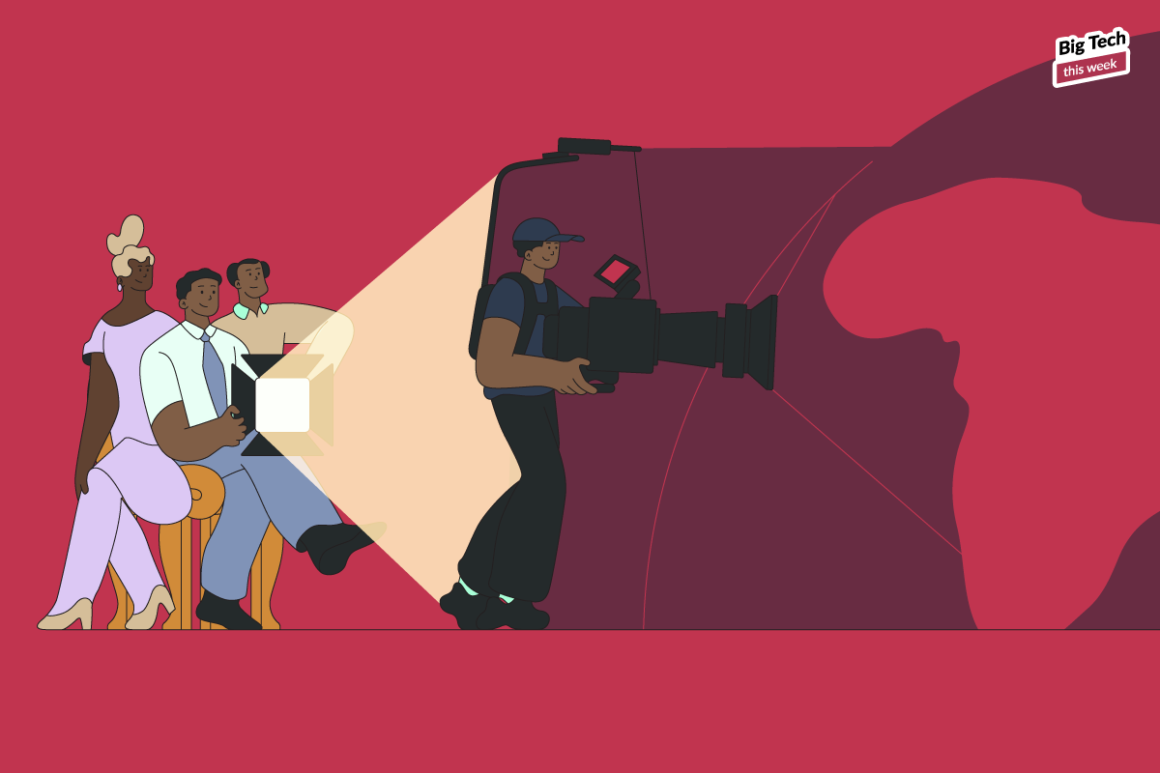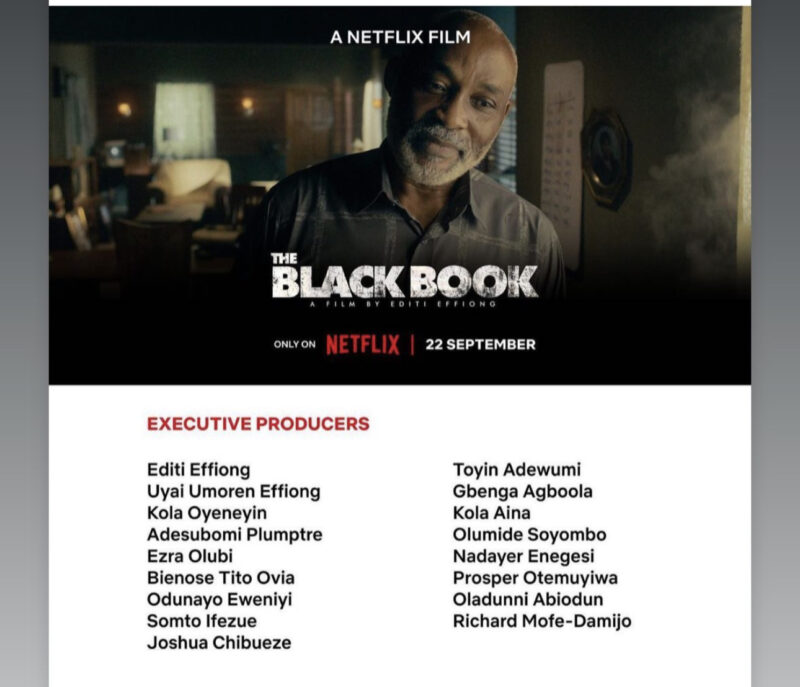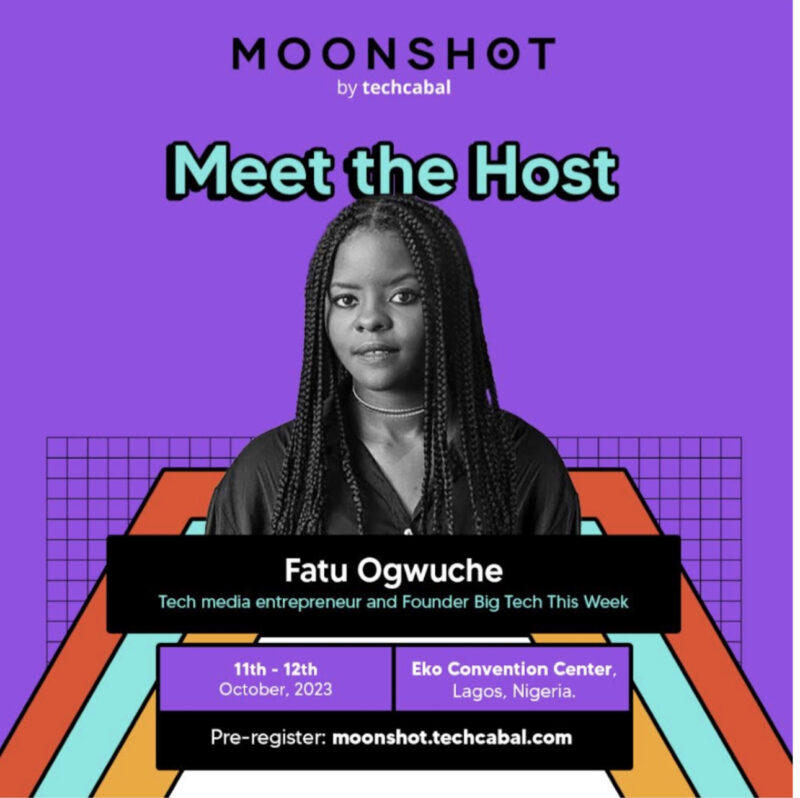Top of Mind: Happy Sunday!
Nigeria’s tech ecosystem and Nollywood made a baby called The Black Book.
For the first time in Nollywood’s history, Nigerian startup founders were the main backers of a Netflix original directed by Editi Effiong.
The founders became executive producers on The Black Book, now streaming on Netflix.
Here’s a recap of my conversation with Effiong and some of his executive producers about funding The Black Book and what local investments mean for the future of Africa’s movie industry.
In this issue, we’ll break down how the tech ecosystem brought this Netflix original to life.
Plus, I’m hosting my first tech conference! And I’ll tell you all about it.
Let’s get into it.
One big thing:
- Tech meets Nollywood.
- Yours truly hosts the Moonshot by TechCabal.

The Short: Editi Effiong’s directorial debut, The Black Book, premiered this week with an EP list of prominent names in Nigeria’s tech ecosystem and a $1 million budget.
A tech roundtable: Historically, Nollywood gets funded from traditional sources like the government, banks, foreign investors, etc. – but this changed as The Black Book was fully funded by Nigerian investors.
The EP list reads like an African startup’s cap table.

Of the 16 names, 11 are seasoned tech founders and venture capital investors.
- Kola Oyeneyin (CEO, Opportunik Global Fund)
- Subomi Plumptre (co-founder of Volition Cap)
- Ezra Olubi (co-founder/CTO of Paystack)
- Odunayo Oweniyi (co-founder/COO of Piggyvest)
- Somto Ifezue (co-founder/CEO of Piggyvest)
- Josh Chibueze (co-founder/CMO of Piggyvest)
- Olugbenga Agboola (founder/CEO of Flutterwave)
- Kola Aina (founding partner at Ventures Platform)
- Olumide Soyombo (co-founder Bluechip Technologies)
- Nadayar Enegesi (co-founder/CEO Eden Life)
- Prosper Otemuyiwa (co-founder/CTO Eden Life)
Why it matters: The Black Book marks a significant shift from how Nollywood gets funded and sets the stage for the future of financing in African cinema and reliance on foreign investments.
Friends and family: Effiong stated that he did not set out to make a $1 million film, but when he saw the production costs, he realised he would need outside capital to make it work.
The first place he turned to was a network of his peers who he’d known and worked with for decades – way before the existence of their startups.
A no-brainer: Effiong’s track record with successful films such as Up North and Fish Bone gave the investors confidence that pulling off a $1 million picture was possible. Supporting Effiong’s directorial debut was essential, but existing evidence made the investment a no-brainer.
Connected to this was that Effiong had skin in the game. He led the funding round with 30% of personal funds before rounding up a stellar list of tech investors.
Tech fundamentals, expert storytelling: Pulling the curtain behind the making of The Black Book feels like an exposé on how to build a successful tech company. The factors that led to the film’s success, from fundraising, investor updates, product launches and exits, are the same principles that determine the success of startups.
It’s the first time we’ve witnessed Nollywood apply some of the fundamentals of the tech ecosystem to African storytelling, and the results speak for themselves.
However, despite Effiong’s personal relationship with the executive producers, the fundraising process and investor updates remained professional – and in startup land, these indicate an investment’s success or failure.
African stories, told by Africans: Unanimous feedback by the investors was that African stories needed to be told by Africans to highlight the nuances of our culture and amplify our rich heritage.
Foreign investors and government funding usually come with deep pockets and strong opinions, and while their investments fund Nollywood, it could also restrict creative freedom.
Fundamentally, the success of an African film funded by local investors signals to the continent and the world that we have the economic strength to produce compelling motion pictures.
By the numbers: The film was funded in Nigerian currency, but we’re told Netflix’s dollar acquisition helped cushion the effects of the Naira’s depreciation, and the investors say they’re happy.
While a profitable exit was not the deal sealer for the investors, the success of this partnership motivated Volition Cap to create a new $20m fund to invest in African stories, and Effiong’s goal to raise a $10 million fund to back the next generation of African filmmakers.
Final thoughts: The Black Book is a captivating movie and compelling piece of art built with rich storytelling and flawless execution. I predict more partnerships between Africa’s tech ecosystem and the film industry as Effiong’s directorial debut becomes the marker.
The Black Book is already the number one film this week in Nigeria on Netflix, five in the U.S. and six globally.
So, go stream The Black Book, throw watch parties with your friends and family, and watch Netflix prioritise more investments in African content.
I’m so excited to be hosting TechCabal’s Moonshot Conference in Lagos next month!

TechCabal is bringing key players within Africa’s Tech Ecosystem in person to Lagos, Nigeria. Moonshot by TechCabal is a conference that will bring together Africa’s tech ecosystem to network, collaborate, share insights and celebrate innovation on the continent.
I’ve got a special 20% discount on tickets for my subscribers, so buy your tickets ASAP and come have fun with me on the 11th and 12th of October at the Eko Convention Centre.
See you soon 🚀
Thanks for reading! We’d love to hear your thoughts about this week’s issue.
You can respond directly to this email or find me on Twitter @fatuogwuche 🙂
And follow us on Twitter @bigtechthisweek.

